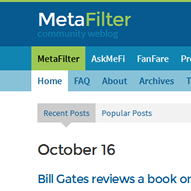Music Artists Routinely Give Away Their Most Valuable Resource and Don’t Even Realize It
 I’ve been thinking a lot about music artists and community recently, thanks to Ryan Leslie and Nathan McCartney of Disruptive Multimedia. They are on a mission to convince music artists of the value of connecting directly with fans. When I listen to them, I really believe they are trying to get artists to understand the value of actively managing your community.
I’ve been thinking a lot about music artists and community recently, thanks to Ryan Leslie and Nathan McCartney of Disruptive Multimedia. They are on a mission to convince music artists of the value of connecting directly with fans. When I listen to them, I really believe they are trying to get artists to understand the value of actively managing your community.
The sad fact is that most music artists are all too happy to hand their community over to a third party and lose the direct connection. When you send a fan to iTunes to buy an album, iTunes keeps 30% of the revenue – and 100% of the relationship. The revenue cut isn’t a big deal, but the relationship is everything.
And yet that is what most artists do when they try to sell music. They send people to iTunes. They transfer the relationship to Apple, who knows everything about the buyer. Meanwhile, the artist knows nothing. Too many artists are accepting of this arrangement. Data is power, and Apple holds the power. But it doesn’t have to be that way.
Read More

 The other day I wrote about qualifying new members and the idea of
The other day I wrote about qualifying new members and the idea of 

 I recently asked
I recently asked  From
From 


